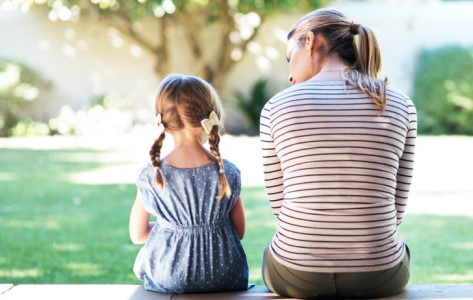
by Mary Ann LoFrumento, MD, pediatrician
Three- to five-year-olds have increasing language skills, however they do not have the capacity to understand, interpret, analyze and process this information as adults do, and they don’t need to. Most experts agree that the younger the child, the less they should be exposed to unnecessary information.
Preschoolers understand about being “sick.” Mom or Dad might give them some medicine, or they might go to see the pediatrician. What children this age fear the most is separation from their parents. Discussions about death or dying should be avoided completely, if possible.
Explaining spreading germs and quarantine should be handled with care. Talking calmly and confidently can help avoid anxiety that could persist after this crisis has passed. A good approach at this age is to only answer questions when asked and put answers in concrete terms and don’t embellish. Try to frame things in a positive way.
Fred Rogers, who hosted Mr. Rogers' Neighborhood for so many years, was a master at how to speak to young children about difficult topics. I find myself asking, “What would Mr. Rogers say to children right now?” He would address their fear in a calm manner, he would be concrete, and he would be reassuring. He would probably start by asking, “Do you know what a virus (or germ) is?” Then he would answer the question with a very simple explanation in language a child could understand: “There is a virus going around and some people are getting sick from it and getting a very bad cold.” He would explain why people cover their mouths when they cough or blow their nose into a tissue. He would add that your parents and your doctor are there to take care of you and keep you well. He would probably add a song while demonstrating washing hands. He used to say to children in times of trouble, “Look for the helpers.” You can point out all the people working to keep everyone healthy.
Tips for Preschool Children:
- Do not watch TV news shows while they are in the room or in listening distance.
- Give out lots of hugs and reassurance. Preschoolers are very perceptive and sensitive to your feelings. If you appear in control, they will feel secure.
- Answer questions only as they come up. Preschoolers are concrete thinkers and the answers to their questions need to be concrete and not lengthy, in-depth analysis. Translate concepts into their own language. For example, if your child asks why Grandma can’t visit, tell them “We are all playing a “stay at home” game now. Let’s call Grandma on the phone.”
- Try to keep their routine consistent. This is a great source of comfort to young children.
- Divide and conquer. Take turns with work commitments and, if possible, always have someone who can focus on the children while a parent works from home. Don’t rely on television watching and video games. While it might be necessary to loosen the American Academy of Pediatrics advice to limit media time to two hours a day, it will not be helpful to have small children glued to a screen without a lot of social interaction with parents or caretakers.
- Respect short attention spans. Make video visits with relatives fun but keep them short. Limit these visits to no more than five minutes and maybe space them out during the day. Children have short attention spans.
- Do some exercise with your children in the house. Dancing is always fun, as are hide and seek and chase games.
- Try to get outside with your preschooler if you can. This will be good for the whole family.
- Provide creative play outlets to enable children to express their feelings. Art, music, puppets, stuffed animals and building blocks have all been helpful for young children.